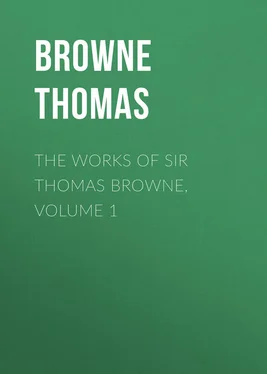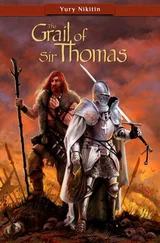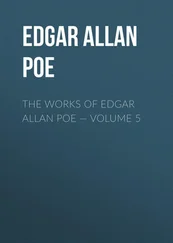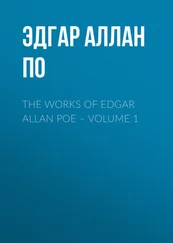Thomas Browne - The Works of Sir Thomas Browne, Volume 1
Здесь есть возможность читать онлайн «Thomas Browne - The Works of Sir Thomas Browne, Volume 1» — ознакомительный отрывок электронной книги совершенно бесплатно, а после прочтения отрывка купить полную версию. В некоторых случаях можно слушать аудио, скачать через торрент в формате fb2 и присутствует краткое содержание. ISBN: , Жанр: foreign_antique, foreign_prose, на английском языке. Описание произведения, (предисловие) а так же отзывы посетителей доступны на портале библиотеки ЛибКат.
- Название:The Works of Sir Thomas Browne, Volume 1
- Автор:
- Жанр:
- Год:неизвестен
- ISBN:http://www.gutenberg.org/ebooks/39960
- Рейтинг книги:5 / 5. Голосов: 1
-
Избранное:Добавить в избранное
- Отзывы:
-
Ваша оценка:
- 100
- 1
- 2
- 3
- 4
- 5
The Works of Sir Thomas Browne, Volume 1: краткое содержание, описание и аннотация
Предлагаем к чтению аннотацию, описание, краткое содержание или предисловие (зависит от того, что написал сам автор книги «The Works of Sir Thomas Browne, Volume 1»). Если вы не нашли необходимую информацию о книге — напишите в комментариях, мы постараемся отыскать её.
The Works of Sir Thomas Browne, Volume 1 — читать онлайн ознакомительный отрывок
Ниже представлен текст книги, разбитый по страницам. Система сохранения места последней прочитанной страницы, позволяет с удобством читать онлайн бесплатно книгу «The Works of Sir Thomas Browne, Volume 1», без необходимости каждый раз заново искать на чём Вы остановились. Поставьте закладку, и сможете в любой момент перейти на страницу, на которой закончили чтение.
Интервал:
Закладка:
Illud in his rebus vitium vehementer et istum,
Effugere errorem vitareque premeditabor
Lumina ne facias oculorum clara creata
Prospicere ut possimus; et, ut proferre viai
Proceros passus, ideo fastigia posse
Surarum ac feminum pedibus fundata plicari:
Brachia tum porro validis ex apta lacertis
Esse, manusq; datas utraq; ex parte ministras,
Vt facere ad vitam possimus, quæ foret usus:
Cætera de genere hoc, inter quæcunq; precantur
Omnia perversa præpostera sunt ratione:
Nil ideo quoniam natum'st in corpore, ut uti
Possemus; sed quod natum'st, id procreat usum,
Nec fuit ante videre oculorum lumina nata,
Nec dictis orare prius, quam lingua creata'st,
Sed potius longe linguæ præcessit origo
Sermonem; multoq: creatæ sunt prius aures
Quam sonus est auditus, et omnia deniq; membra
Ante fuere, ut opinor, eorum quam foret usus:
Haud igitur potuere utendi crescere causa.
Sect. 15. Pag. 24.
There are no Grotesques in nature, etc. ] So Monsr. Montaign , Il n'ya rien d'inutil en nature, non pas l'inutilité mesmes, Rien ne s'est ingeré en cet Univers qui n'y tienne place opportun. Ess. l. 3. c. 1.
Who admires not Regio-montanus his Fly beyond his Eagle? ] Of these Du Bartas .
Que diray je de l'aigle,
D'ont un doct Aleman honore nostre siecle
Aigle qui deslogeant de la maistresse main,
Aila loin au devant d'un Empereur Germain;
Et l'ayant recontré suddain d'une aisle accorte,
Se tournant le suit au seuil de la porte
Du fort Norembergois, que lis piliers dorez,
Les tapissez chemins, les arcs elabourez,
Les fourdroyans Canons, in la jeusnesse isnelle,
In le chena Senat, n'honnoroit tant come elle.
Vn jour, que cetominer plus des esbats, que de mets,
En privé fasteyoit ses seignieurs plus amees,
Vne mousche de fer, dans sa main recelee,
Prit sans ayde d'autroy, sa gallard evolee:
Fit une entiere Ronde, et puis d'un cerveau las
Come ayant jugement, se purcha sur son bras.
Why should not I that wooden Eagle mention?
(A learned German's late admir'd invention)
Which mounting from his Fist that framed her,
Flew far to meet an Almain Emperour:
And having met him, with her nimble Train,
And weary Wings turning about again,
Followed him close unto the Castle Gate
Of Noremberg ; whom all the shews of state,
Streets hang'd with Arras, arches curious built,
Loud thundring Canons, Columns richly guilt,
Grey-headed Senate, and youth's gallantise,
Grac'd not so much as onely this device.
Once as this Artist more with mirth than meat,
Feasted some friends that he esteemed great;
From under's hand an Iron Fly flew out,
Which having flown a perfect round about,
With weary wings, return'd unto her Master,
And (as judicious) on his arm she plac'd her.
Or wonder not more at the operation of two souls in those little bodies, than but one in the Trunk of a Cedar? ] That is, the vegetative , which according to the common opinion, is supposed to be in Trees , though the Epicures and Stoiques would not allow any Soul in Plants; but Empedocles and Plato allowed them not only a vegetative Soul, but affirm'd them to be Animals . The Manichees went farther, and attributed so much of the rational Soul to them, that they accounted it Homicide to gather either the flowers or fruit, as St. Aug. reports.
We carry with us the wonders we seek without us. ] So St. Aug. l. 10. de civ. c. 3. Omni miraculo quod fit per hominem majus miraculum est homo.
Sect. 16. Pag. 25.
Another of his servant Nature, that publique and universal Manuscript that lies expansed, etc. ] So is the description of Du Bartas 7. jour de la sepm.
Oyes ce Docteur muet estudie en ce livreQui nuict et jour ouvert t'apprendra de bien vivre.
All things are artificial, for Nature is the Art of God. ] So Mr. Hobbes in his Leviathan ( in initio ) Nature is the Art whereby God governs the world.
Sect. 17. Pag. 27.
Directing the operations of single and individual Essences, etc. ] Things singular or individuals, are in the opinion of Philosophers not to be known, but by the way of sense, or by that which knows by its Essence, and that is onely God. The Devils have no such knowledge, because whatsoever knows so, is either the cause or effect of the thing known; whereupon Averroes concluded that God was the cause of all things, because he understands all things by his Essence; and Albertus Magnus concluded, That the inferiour intelligence understands the superiour, because it is an effect of the superiour: but neither of these can be said of the Devil ; for it appears he is not the effect of any of these inferiour things, much less is he the cause, for the power of Creation onely belongs to God.
All cannot be happy at once, because the Glory of one State depends upon the ruine of another. ] This Theme is ingeniously handled by Mr. Montaigne livr. 1. des Ess. cap. 22. the title whereof is, Le profit de l'un est dommage de l'autre .
Sect. 18. Pag. 29.
'Tis the common fate of men of singular gifts of mind, to be destitute of those of Fortune. ] So Petron. Arbiter. Amor ingenii neminem unquum divitem fecit , in Satyric . And Apuleius in Apolog. Idem mihi etiam (saith he) paupertatem opprobravit acceptum Philosopho crimen et ultro profitendum ; and then a little afterwards, he sheweth that it was the common fate of those that had singular gifts of mind: Eadem enim est paupertas apud Græcos in Aristide justa, in Phocyone benigna, in Epaminonde strenua, in Socrate sapiens, in Homero diserta.
We need not labour with so many arguments to confute judicial Astrology. ] There is nothing in judicial Astrology that may render it impious; but the exception against it is, that it is vain and fallible; of which any man will be convinced, that has read Tully de Divinat. and St. Aug. book 5. de Civ. dei .
Sect. 19. Pag. 31.
There is in our soul a kind of Triumvirate – that distracts the peace of our Commonwealth, not less than did that other the State of Rome. ] There were two Triumvirates , by which the peace of Rome was distracted; that of Crassus , Cæsar and Pompey , of which Lucan , l. 1.
– Tu causam aliorum—
Facta tribus Dominis communis Roma, nec unquam
In turbam missi feralia fœdera Regni.
And that other of Augustus , Antonius and Lepidus , by whom, saith Florus , Respublica convulsa est lacerataque , which comes somewhat near the Author's words, and therefore I take it that he means this last Triumvirate.
Sect. 19. Pag. 32.
Would disswade my belief from the miracle of the brazen Serpent. ] Vid. Coqueum in , l. 10. Aug. de Civ. Dei , c. 8.
Читать дальшеИнтервал:
Закладка:
Похожие книги на «The Works of Sir Thomas Browne, Volume 1»
Представляем Вашему вниманию похожие книги на «The Works of Sir Thomas Browne, Volume 1» списком для выбора. Мы отобрали схожую по названию и смыслу литературу в надежде предоставить читателям больше вариантов отыскать новые, интересные, ещё непрочитанные произведения.
Обсуждение, отзывы о книге «The Works of Sir Thomas Browne, Volume 1» и просто собственные мнения читателей. Оставьте ваши комментарии, напишите, что Вы думаете о произведении, его смысле или главных героях. Укажите что конкретно понравилось, а что нет, и почему Вы так считаете.












